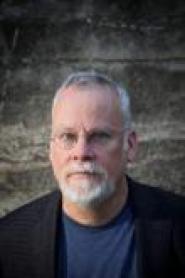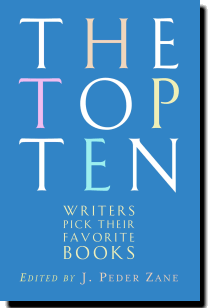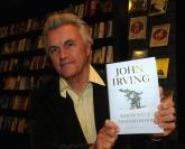It seems fitting that Lev Grossman would receive a dream review in the New York Times Book Review for the final volume of his fantasy trilogy:
“If Lev Grossman’s The Magicians was like The Secret History crossed with Harry Potter, and if its sequel, The Magician King, was a descendant of The Chronicles of Narnia (with a touch of the 1990s flick “The Craft” thrown in), then what cultural mash-up does Lev Grossman conjure in The Magician’s Land, the trilogy’s final book? I can’t tell you,” writes Edan Lepucki, “because I was too thoroughly swept away by this richly imagined and continually surprising novel to be concerned with cute comparisons.
“The Magician’s Land is the strongest book in Grossman’s series. It not only offers a satisfying conclusion to Quentin Coldwater’s quests, earthly and otherwise, but also considers complex questions about identity and selfhood as profound as they are entertaining.
“Grossman’s trilogy begins with Quentin’s matriculation at Brakebills College, where he learns magic; befriends the upperclassmen Josh, Eliot and Janet; and falls in love with shy, talented Alice. After graduation, the friends discover a way into Fillory, a magical land Quentin has spent most of his life wishing he could visit, ever since reading (and rereading) a series of children’s fantasy novels about the place.”
In his glowing review in the Dallas Morning News, Mike Vago adds: “The childhood fantasy in question isn’t just having magical abilities. For Quentin, it’s being able to travel to Fillory—the Narnia-esque magical land he and his friends discover in the first book and end up ruling over in the second. Once the third book gets going, doom is on the horizon and Fillory’s fate, naturally, hangs in the balance. But before the world-saving can start, Grossman’s story leaps into action from page one, alternating between rollicking adventure in Fillory, and a magical heist back in the real world, with requisite twists, turns, and double-crosses, and a deeper look into characters and plots he’s been quietly setting up for two books.”
Where to begin? At the beginning, says Hillary Kelly in The New Republic: “If you haven’t read the first two books in Grossman’s Magicians trilogy, buy them immediately and set aside a weekend to read them straight through before you turn to The Magician’s Land. The series, which follows a group of—you guessed it—magicians through the emotional foibles of young adulthood has been called “Harry Potter for adults.” But it’s way more complex than that. Grossman hones in on the particularly brutal business of being young, and then adds layer upon layer of literary allusion, creating works that are both homages to fantasy’s past and glimpses at its future.”
- Read Slate magazine’s analysis of the trilogy.
- Read an interview with Lev.
- Visit Lev’s official website.
Lev Grossman’s Top Ten List
1. Madame Bovary by Gustave Flaubert (1857).
2. Mrs. Dalloway by Virginia Woolf (1925).
3. Arcadia by Tom Stoppard (1993).
4. Ulysses by James Joyce (1922).
5. The Trial by Franz Kafka (1925).
6. The Chronicles of Narnia by C.S. Lewis (1950-56).
7. The Once and Future King by T.H. White (1958).
8. Brideshead Revisited by Evelyn Waugh (1945).
9. Troilus and Criseyde by Geoffrey Chaucer (1381).
10. Dead Souls by Nikolai Gogol (1842).



